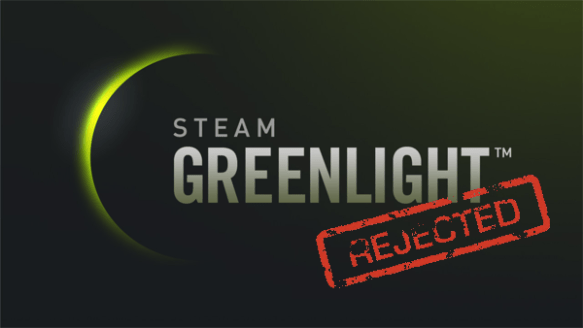Greenlight - What's the problem?
There’s been a lot of accusations about Steam’s Greenlight lately and it's lack of fairness. And my reaction is a big “so what?” That's not the real issue here.


There’s been a lot of accusations about Steam’s Greenlight lately. Accusations that it’s just a big popularity contest. Accusations that they’re turning indies away from their primary submission pipeline and pointing them towards Greenlight. Accusations that fantastic games are never getting through Greenlight.
And my reaction is a big “so what?”
These complaints communicate a fundamental misunderstanding of publishing, of business, and of the changes that technology has made to both.
It used to be in the creative industries a person would have to rely on “getting discovered.” Bands hoped that someday their demo tape would come across the desk of a music industry executive. It used to be that writers would send their manuscript to hundreds of publishers and hope that someone would pick it up and publish it.
Now all that’s changed. Books can be printed one by one, and music can be distributed at no cost. Publishing has been commoditized and the gatekeepers have been removed.
This creates a different fundamental issue though. Flooding. Without the publishers acting as curators, the platforms have become flooded. Without the barrier to entry, there are more people than ever vying for increasingly valuable pieces of our time and attention. The platforms are a victim of their own success.
And this leads us to the reality that indie developers need to recognize: good content is not enough. While it’s possible that a developer will get lucky, get noticed, and sell millions without effort beyond making the game, it’s unlikely. Not only that, but it’s irresponsible as a developer to aim for that if they’re at all serious about trying make a commercial success of their project. Indies must foster their own tribe. They need to create their own platform to shout from. Making a game isn’t enough.
If some of this sounds familiar, you’re probably a reader of Michael Hyatt or Seth Goden. I don’t claim these to be original thoughts - I’m merely applying known concepts to a specific situation. Michael Hyatt’s book Platform and Seth Godin’s book Tribes explores this concept in-depth and I highly recommend both books.
So yes, in a way, Greenlight is in fact a popularity contest. It’s going to be incredibly difficult to get the green light without an existing tribe of followers. And that’s fine. The reality is that Steam isn’t interested in letting indies use their platform if they have nothing to contribute to the platform itself. Valve has built up a fantastic platform in Steam, and they understand the value of it. They have more options available for games to publish than ever before. They’re going to opt for the game that will build the platform, rather than only leach off it.
If Valve is turning indies away from their primary submission process in favor of Greenlight, that’s probably their hint to that indie that they don’t think that the sales will be there, and they don’t think the tribe of followers is there. Greenlight is an opportunity for indies to prove that they can drive sales to Steam and build the platform.
And yes, there’s an obvious downfall to all of this. There will be fantastic games that will never see large success and will never end up on Steam. I don’t buy into the victim mentality that it’s somehow Valve’s fault though. If Valve does not want to share their platform with a developer then that’s their prerogative. The responsibility lies with the developer. It’s up to the developer to create compelling content. It’s up to the developer to get it out there in such a way that they get noticed. It’s up to the developer to realize that their work does not end with the game, but rather starts with the game and ends in a platform of their own.
Again, if you’re interested in delving deeper into this topic, pickup a copy of Tribes by Seth Godin and Platform by Michael Hyatt. Michael Hyatt also has an excellent blog that’s worth frequenting (http://michaelhyatt.com/).
Originallly published on my blog:
http://nicholaskoza.wordpress.com/2013/06/01/greenlight-whats-the-problem/![]() @nicholaskoza
@nicholaskoza
Read more about:
BlogsAbout the Author(s)
You May Also Like







.jpeg?width=700&auto=webp&quality=80&disable=upscale)








